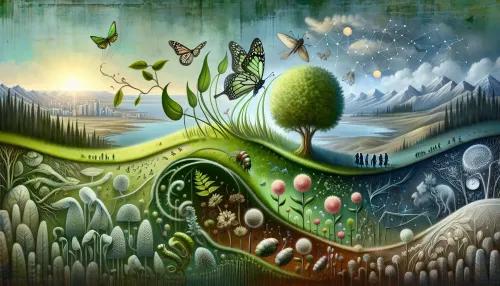
Intersecting Identities: The Influence of Heritage on Autistic Children's Growth

In the realm of autism understanding, the influence of a child's heritage holds immense significance. As we peer into the future, it becomes increasingly apparent that acknowledging and incorporating cultural heritage can significantly enhance our comprehension and approach to autism in children.
Weaving History With Now: How Heritage Shapes Autism Understanding
The past is not always a foreign country; it is an integral part of the present. When we consider the diverse backgrounds from which autistic children hail, we start to appreciate how their unique heritages shape their experiences. Cultures carry specific norms, beliefs, and practices that impact the perception and treatment of autism. Understanding these influences fosters more tailored and effective support for autistic children.
Ancestral Wisdom: Leveraging Historical Practices for Today’s Autistic Child
Many cultures possess rich repositories of anecdotal and traditional wisdom regarding healthcare and well-being. By delving into historical practices, we can uncover invaluable insights that may offer alternative perspectives on addressing the needs of autistic children. This merging of ancestral wisdom with modern approaches could open new avenues for holistic and culturally sensitive interventions.
Genealogy and Genetics: Exploring Heritage Lines in Understanding Autism's Roots
Unraveling the genetic underpinnings of autism has been a focal point in scientific research. However, integrating the study of genealogy within specific cultural contexts could unveil a deeper understanding of how autism manifests within distinct heritages. By scrutinizing heritage lines, researchers may discern intricate patterns, contributing to enhanced diagnostic precision and personalized care.
Identity Milestones: Celebrating National Heritage Days with an Autistic Twist
Cultural celebrations often serve as platforms for fostering a profound sense of identity and belonging. Recognizing and adapting national heritage days to accommodate autistic children can offer them an inclusive space for exploration, celebration, and learning within the framework of their unique heritages. Such endeavors not only empower autistic individuals but also promote societal awareness and acceptance.
The Power of Storytelling: Passing Down Cultural Lore to Autistic Generations
Storytelling has been an intrinsic part of many cultures, serving as a conduit for passing down traditions, values, and knowledge. Extending this tradition to share narratives tailored to resonate with autistic children can instill a profound connection to their heritage while promoting cognitive and emotional development. Leveraging storytelling also presents an opportunity to create empathetic societal narratives around autism.
Balancing Tradition and Therapy: Integrating Historic Beliefs in Modern Autism Treatments
As the field of autism intervention evolves, there is merit in exploring how historic beliefs and holistic practices align with contemporary therapeutic approaches. Integrating culturally resonant beliefs within modern therapies could yield more engaging and effective treatments for autistic children while fostering familial trust in interventions. This harmonious fusion empowers families to draw on their heritage to enrich their child's developmental journey.
Lineage Legacies: How Family Histories Impact Autistic Individuals’ Self-Concept
A person's heritage is intricately entwined with their family history, shaping their self-identity. For autistic individuals, understanding their family's heritage can provide them with a profound sense of belonging and context. Recognizing this impact grants us insight into nurturing a positive self-concept in autistic children, fostering resilience through an appreciation of their lineage legacies.


